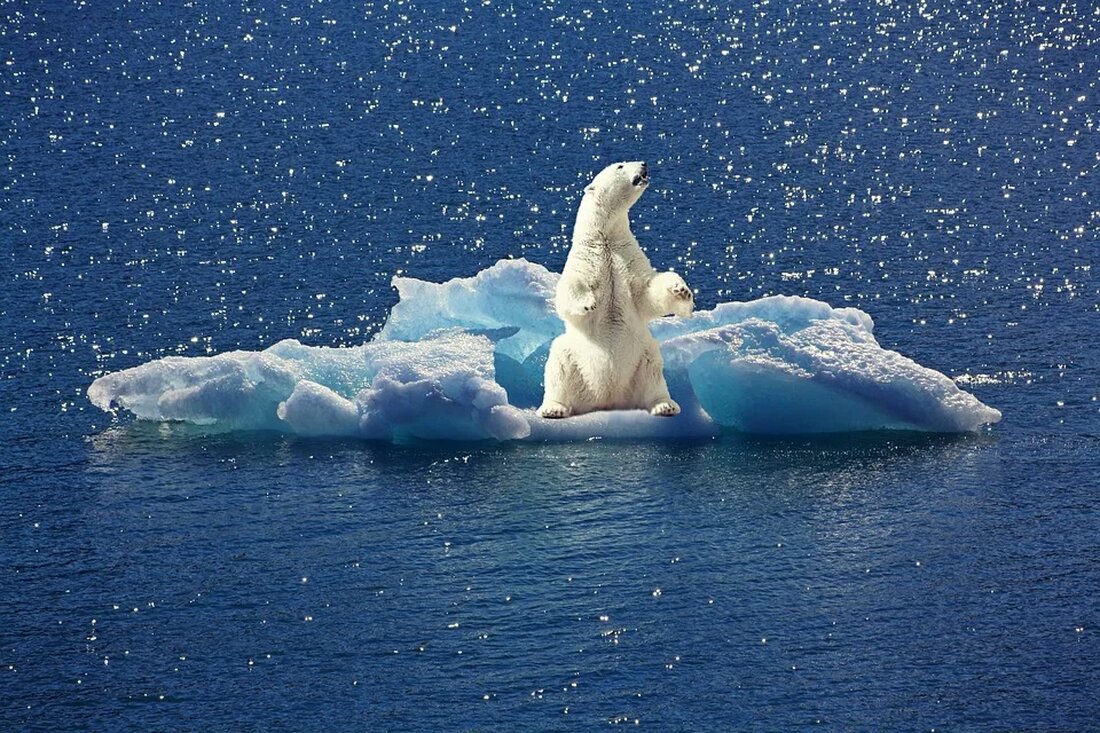Climate change and species extinction: A connection
Climate change and species extinction are two of the exponential ecological challenges facing our world in its modern history. Both phenomena are significantly influenced and reinforced by human activities. Furthermore, they are deeply intertwined and influence each other in costly and unfortunate ways. In this article we want to shed light on the connections between these two ecological crises and discuss what consequences they have for our ecosystem. Climate Change: Processes and Effects Background to Climate Change Climate change refers to significant, long-term changes in the weather patterns and temperatures of our world. While climate change is a natural part of Earth's history, scientific data indicates...

Climate change and species extinction: A connection
Climate change and species extinction are two of the exponential ecological challenges facing our world in its modern history. Both phenomena are significantly influenced and reinforced by human activities. Furthermore, they are deeply intertwined and influence each other in costly and unfortunate ways. In this article we want to shed light on the connections between these two ecological crises and discuss what consequences they have for our ecosystem.
Climate change: processes and impacts
Climate change background
Climate change refers to significant, long-term changes in weather patterns and temperatures across our world. While climate change is a natural part of Earth's history, scientific data indicates that current global warming is occurring rapidly and dramatically, and that human activities such as fossil fuel burning and deforestation play a significant role in it.
Consequences of climate change
Climate change has a variety of impacts on our planetary system. These include rising sea levels, increasing extreme weather events, changing rainfall patterns and changing ecosystems. These impacts of climate change not only have a direct impact on human communities, but also threaten biodiversity worldwide.
Species extinction: causes and effects
Background of species extinction
Species extinction or mass extinction refers to the sudden and rapid extinction of a large number of species on Earth. There have been five such events in Earth's entire history, in which up to 95% of all species were wiped out. However, today the world is facing a sixth mass extinction, which, unlike previous events, is due primarily to human activity.
Consequences of species extinction
Each species in an ecosystem plays a special and irreplaceable role. Therefore, loss of species leads to significant changes in these systems. Species loss threatens the stability and health of ecosystems and deprives people of valuable resources such as food, medicine and clean air and water.
The connection between climate change and species extinction
The influence of climate change on species extinction
Increasing global average temperatures are leading to habitat changes and destruction, threatening many animal and plant species. In addition, climate change is changing patterns of precipitation and weather, which can lead to drought, floods or extreme storms. These extreme events can directly impact species and contribute significantly to their extinction.
The influence of species extinction on climate change
However, there is also a feedback effect: species extinction can further exacerbate climate change. For example, forests help remove carbon dioxide from the atmosphere through photosynthesis. So if a forest species dies out, it could lead to less CO2 being absorbed, which could further increase climate change.
Current situation and future perspectives
It is undeniable that both climate change and species extinction pose serious threats to our ecosystem. Efforts to date to combat these two crises, while notable, have been inadequate. There is therefore an urgent need for decisive global action to limit the burning of fossil fuels, promote renewable energy, reforestation and protect endangered species.
conclusion
Climate change and species extinction are two closely linked dimensions of the global ecological crisis. Not only are they caused and aggravated by human activities, they also influence each other, increasing their destructive effects on our ecosystem. It is critical that we understand and respond to these connections to promote progress toward a more sustainable and equitable world.

 Suche
Suche
 Mein Konto
Mein Konto
